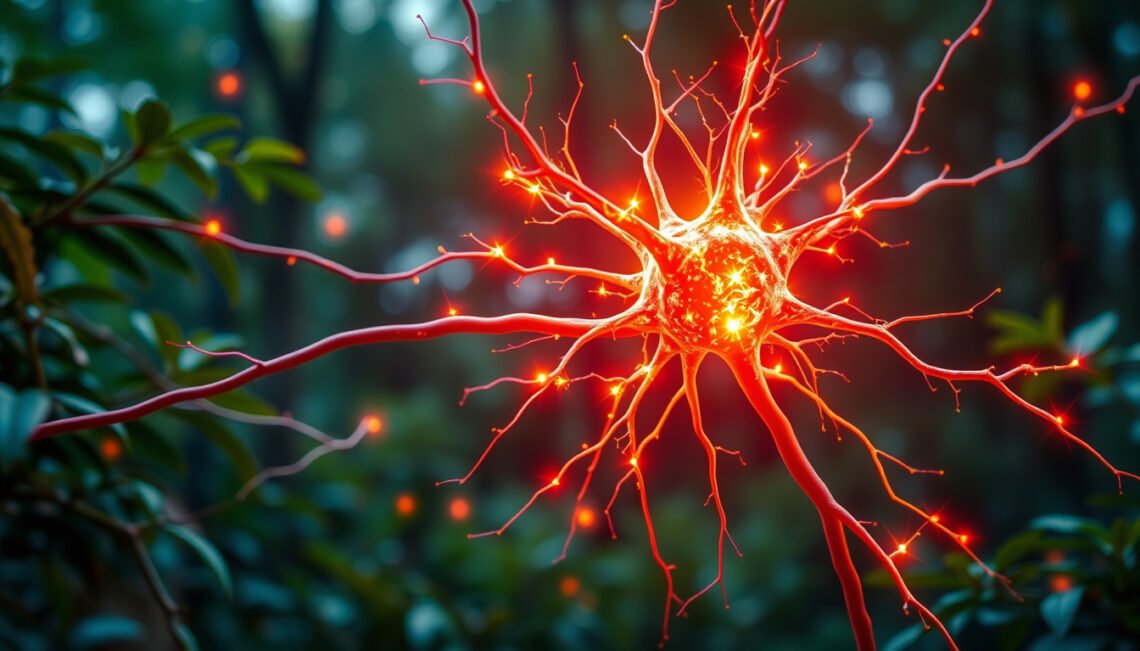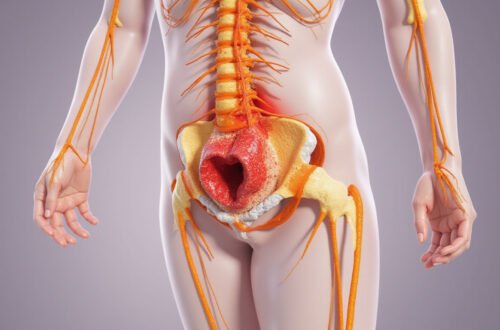Nerve regeneration is a critical process that allows the body to recover from nerve injuries caused by trauma, illness, or degenerative diseases. While medical interventions play a key role, many people seek natural methods to support and accelerate nerve regeneration. Understanding how the nervous system heals and adopting certain lifestyle and dietary strategies can significantly enhance recovery. In this article, we explore the top strategies to accelerate nerve regeneration naturally, helping you regain function and improve quality of life.
Understanding Nerve Regeneration
Nerve regeneration refers to the body’s ability to repair damaged nerve fibers, especially in the peripheral nervous system. Unlike the central nervous system, which has limited capacity for repair, peripheral nerves can regenerate under suitable conditions. Factors influencing nerve regeneration include the extent of injury, overall health, and the environment surrounding injured nerves.
When nerves are injured, axons—the long projections of nerve cells—often degenerate at the injury site. Over time, with the right support, these axons can regrow and re-establish connections with target tissues. The pace of nerve regeneration varies, typically about 1 millimeter per day, making early and supportive interventions vital for optimal recovery.
Key Factors That Support Nerve Regeneration
To effectively stimulate nerve repair naturally, it’s essential to focus on certain nutritional, lifestyle, and environmental factors that foster the body’s innate healing processes.
1. Prioritize a Nutritious Diet Rich in Nerve-Boosting Nutrients
Proper nutrition is foundational to nerve regeneration. Certain nutrients play pivotal roles in repairing nerve tissue, reducing inflammation, and protecting nerves from further damage.
Essential nutrients include:
- Vitamins B12 and B1: Crucial for nerve health and myelin sheath repair.
- Omega-3 Fatty Acids: Anti-inflammatory properties support nerve repair.
- Antioxidants (Vitamins C and E): Combat oxidative stress, which can hamper nerve regeneration.
- Alpha-lipoic acid: Has shown promise in peripheral nerve regeneration.
Including foods like fatty fish (salmon, mackerel), nuts, seeds, leafy greens, and citrus fruits can significantly support nerve health.
2. Incorporate Physical Activity and Gentle Exercise
Regular, moderate exercise enhances blood flow throughout the body, including to damaged nerves. Improved circulation supplies essential nutrients and oxygen, promoting nerve regeneration.
Benefits of physical activity include:
- Stimulating neuroplasticity
- Reducing inflammation
- Improving overall nervous system function
Gentle activities such as walking, yoga, and stretching are recommended, especially during the early recovery phases.
3. Use Natural Supplements with Proven Nerve-Repair Effects
Supplements can be a valuable adjunct to support nerve regeneration. Some of the most researched include:
- N-Acetylcysteine (NAC): An antioxidant that reduces oxidative stress.
- Acetyl-L-Carnitine: Supports mitochondrial health, essential for nerve recovery.
- Turmeric (Curcumin): Has potent anti-inflammatory properties.
Consult with a healthcare provider before starting any supplement regimen, especially if you are on medication.
4. Manage Chronic Conditions Effectively
Conditions such as diabetes and autoimmune diseases can impair nerve regeneration. Maintaining optimal blood sugar levels, controlling inflammation, and managing autoimmune responses are vital.
Regular check-ups, lifestyle adjustments, and medication adherence are crucial for minimizing nerve damage and supporting natural regeneration.
5. Ensure Adequate Rest and Stress Reduction
Chronic stress and inadequate sleep can hinder the regeneration process by increasing inflammation and impairing immune function. Incorporate relaxation techniques such as meditation, deep breathing, and adequate sleep routines to create a supportive healing environment.
6. Limit Toxins and Improve Environmental Factors
Exposure to toxins like alcohol, heavy metals, and certain chemicals can impair nerve repair. Reducing exposure and adopting a toxin-free lifestyle can favorably influence nerve regeneration.

Practical Steps to Promote Nerve Regeneration
Here’s a simplified list of actionable steps to enhance nerve regeneration naturally:
- Eat a balanced diet rich in B vitamins, omega-3s, antioxidants, and anti-inflammatory foods.
- Engage in daily physical activity such as walking or gentle stretching.
- Include supportive supplements like turmeric, alpha-lipoic acid, or acetyl-L-carnitine after consulting your healthcare provider.
- Control chronic health conditions through proper medication, diet, and lifestyle.
- Prioritize sleep and practice relaxation techniques to reduce stress.
- Avoid toxins and environmental pollutants that may impair healing.
Bullet points summarizing nerve regeneration tips:
- Focus on nutrition with nerve-friendly nutrients.
- Maintain regular physical activity.
- Use natural supplements where appropriate.
- Manage underlying health conditions.
- Prioritize rest and stress management.
- Limit exposure to harmful toxins.
Frequently Asked Questions About Nerve Regeneration
1. Can nerve regeneration occur naturally after injury?
Yes, peripheral nerves can regenerate naturally, especially when supported by proper nutrition, lifestyle, and minimal ongoing damage. The body’s healing capacity can be optimized with targeted natural strategies.
2. What are the best dietary options to support nerve regeneration?
Foods rich in B vitamins, omega-3 fatty acids, antioxidants, and anti-inflammatory compounds are most beneficial. Examples include fatty fish, nuts, seeds, leafy greens, and citrus fruits.
3. How long does nerve regeneration typically take?
Nerve regeneration is a slow process, occurring roughly 1 millimeter per day. Depending on the injury size and location, recovery can take several weeks to months or even years in severe cases.
External Source
For comprehensive insights into nerve regeneration, the National Institute of Neurological Disorders and Stroke (NINDS) provides valuable information on nerve repair mechanisms and therapies (source).
Conclusion: Take Charge of Nerve Recovery Naturally
Supporting nerve regeneration naturally involves a multifaceted approach that emphasizes proper nutrition, gentle exercise, stress management, and avoiding harmful toxins. While the process may be gradual, adopting these strategies can significantly enhance your body’s natural ability to heal and restore nerve function.
Don’t wait for complete recovery to start taking action. Implement these top strategies today to promote nerve health and accelerate regeneration naturally. Consult healthcare professionals for personalized guidance and embark on your journey toward nerve repair and improved well-being. Your nervous system’s health is worth it—take proactive steps now!






